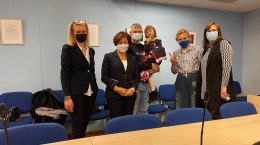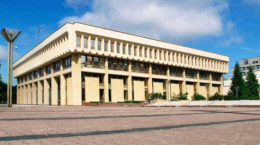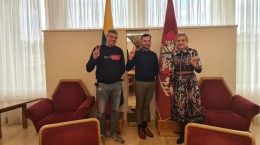Since August last year, Lithuania has been tirelessly accepting Belarusians in need of protection from the fascist regime. Our citizens must settle down from scratch in a new place, and it is not always possible to do what Lithuania requires in this regard, even for security reasons. Olga Karach, head of the ICСI “Our House”, and Natalia Kolegova, head of the public association “Dapamoga”, told Lithuanian authorities about the problems faced by Belarusian refugees in Lithuania. Among the listed problems are employment, legalization, replacement of documents.
Olga Karach and Natalia Kolegova noted that assistance is needed for Belarusian medics, who due to difficulties in recognition of their medical diplomas do not stay in Lithuania but go to Poland or the Czech Republic. Although it is the Belarusian personnel that could help the Lithuanian population amid the fight against coronavirus and the shortage of health workers. To make it easier for Belarusian medical workers to adapt and socialise in the Republic of Lithuania and work in their profession, Olga Karach and Natalija Kolegova suggested simplifying the procedure for recognising a Belarusian medical diploma, introducing relocation programmes for Belarusian doctors and nurses to Lithuania under grant support programmes, organising free Lithuanian language courses for medics with a focus on medical terminology and simplifying examinations.
Olga Karach and Natalia Kolegova also mentioned the problem with the passports of Belarusian relocators. The expiration date of the documents of some of those who fled from the regime expires, and there is no other way to replace them, except through the embassy of Belarus. But even a visit there does not guarantee a new passport. Therefore, representatives of Lithuanian public organizations suggested issuing passports of a foreign citizen of Lithuania to relocators. Similarly, the problem of replacing driving licences arises and Olga Karach and Natalija Kolegova have asked the Lithuanian government to simplify the procedure for those with humanitarian D visas.
Another important issue that the Lithuanian authorities could help with is the facilitation of residence permits. Olga Karach and Natalia Kolegova proposed to simplify the conditions that are mandatory for obtaining a residence permit. Some of them become the reason that relocators go to ask for political asylum, and not to get a job, although they could do this and benefit Lithuania.
In the letter Olga Karach and Natalija Kolegova touched upon the employment issues for Belarusians staying in Lithuania on humanitarian D visa. For those relocated who do not want to apply for political asylum, the employment procedure is obligatory through a permit from the labour exchange, which puts a number of requirements for a migrant worker, which makes it several times more difficult for them to work in the country and integrate into the society. Olga Karach and Natalia Kolegova asked to remove the permission from the labour exchange for relocators.
Many Belarusians fleeing repression are forced to leave Belarus as soon as possible so as not to go to prison and not be tortured. There is often no time to wait for humanitarian visas. Olga Karach and Natalia Kolegova asked to simplify the receipt of humanitarian visas for Belarusians, as well as to make it possible to obtain them in third countries: Georgia, Ukraine, Russia, Turkey, or Egypt.
We join the gratitude of Olga Karach and Natalia Kolegova to the Lithuanian government for the assistance provided to the affected Belarusians, for assistance in resolving relocation issues. Thanks to the actions of the neighbouring country, many of our citizens managed to escape from prison and find themselves in safe conditions for themselves and their children. We hope that Lithuania will continue to support the Belarusian people. And let the relations between the two countries reach a high level after the victory.







